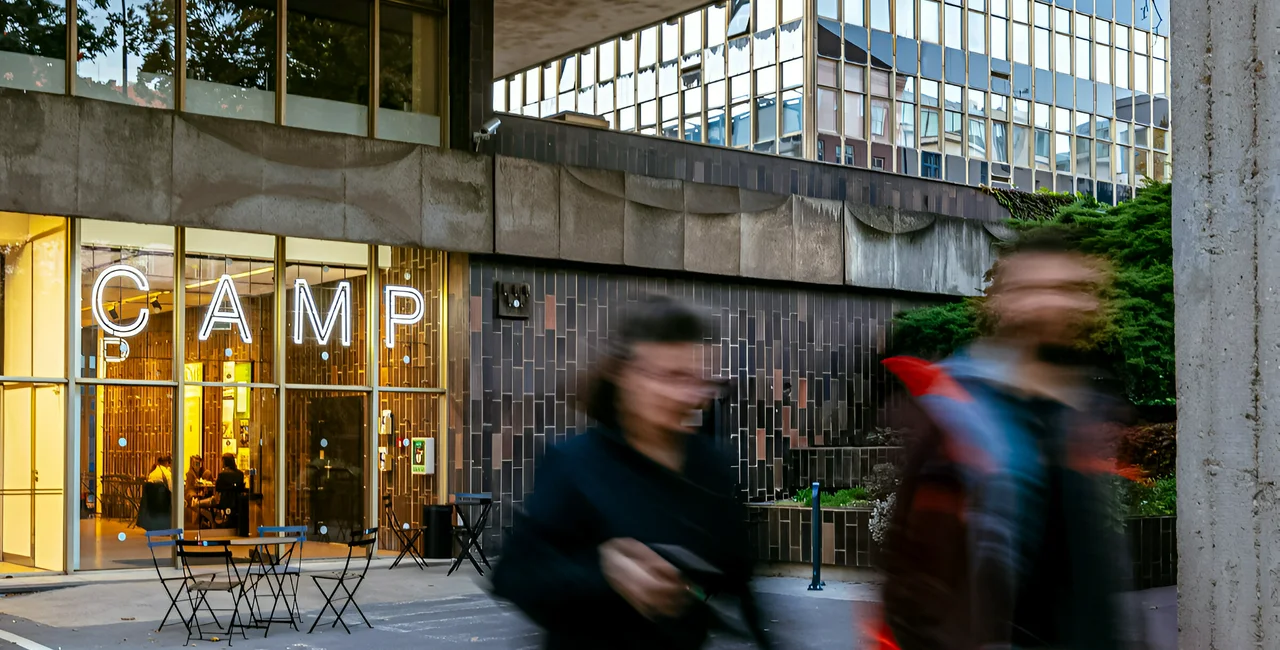The future of Prague’s Center for Architecture and Metropolitan Planning (CAMP), a key cultural hub and gallery in the capital, is uncertain after the Prague City Council excluded funding for its building’s renovation from the municipal budget. Locally known as “Pragerovy kostky” (Praguer Cubes), the 1970s-style structure in Prague 2, near Karlovo náměstí, requires significant repairs to function in the future.
Prague councilor Kristýna Drápalová warned this week that if the Prague Planning and Development Institute (IPR), which operates CAMP, cannot proceed with the renovations soon, the organization may have to vacate the site. This would effectively shut down CAMP indefinitely.
Plans to renovate the building have been ready since 2018. Drápalová stated in an Instagram post that the project is “shovel-ready,” with permits approved and a contractor nearly finalized. Renovations were expected to begin as early as spring.
However, on Monday, the City Council unexpectedly excluded the project from 2025 budget talks. A final decision is pending, with the council set to revisit the issue next week. Many local politicians are pushing to restore the funding.
IPR spokesman Marek Vácha described the building’s condition as “dilapidated” and stressed the financial challenges of such a large project. He revealed that IPR has applied for a subsidy from the Modernization Fund, which could significantly reduce Prague’s financial burden. The outcome of the request is still unknown.
Drápalová urged Prague residents to attend next week's council meeting to support the project. “Any Prague resident can participate,” she said, providing instructions on social media.
Drápalová cautioned that further delays would only increase costs due to inflation and rising construction prices. She warned that postponing the project could cost Prague hundreds of millions more.
She also expressed concern that the property might be sold if the city does not act. Without cultural monument status, a new owner could repurpose the building, potentially erasing its architectural and cultural value.
For years, CAMP has been central to urban planning in Prague, producing initiatives that shape the city’s architecture. This year, for example, it showcased nine transformative projects, including new tram lines on Wenceslas Square and a major overhaul of Smíchov railway station.
A popular spot in the community, it holds film screenings, workshops, conferences, has a cafe, and hosts occasional summer events in the grounds of the Emmaus Monastery, where the building is based. It is also partly behind the annual, light- and visual-based Signal Festival that happens in Prague every year.












 Reading time: 2 minutes
Reading time: 2 minutes 






























